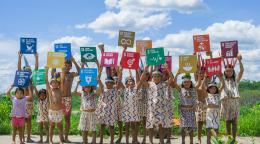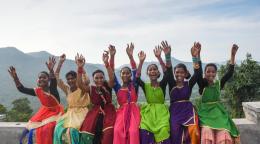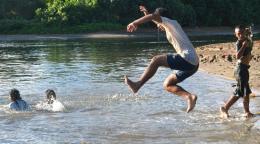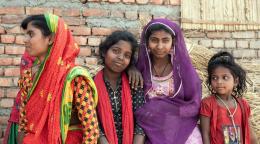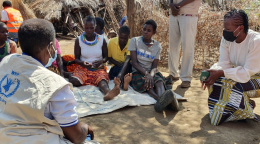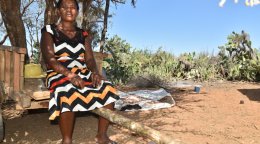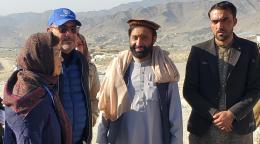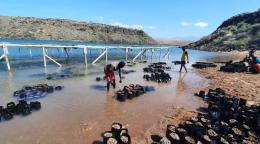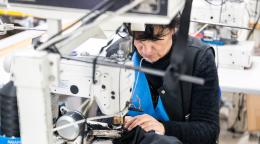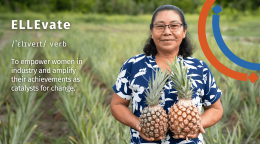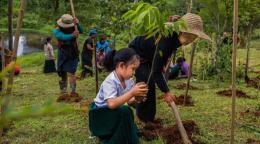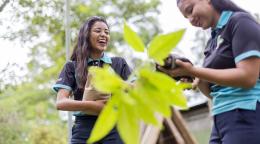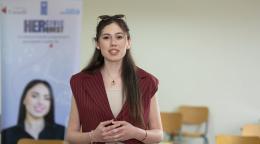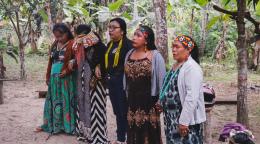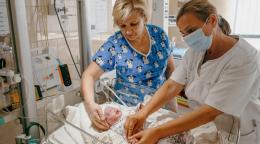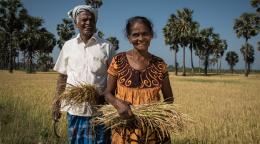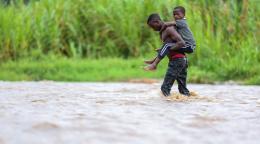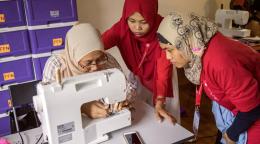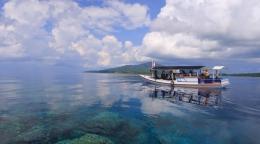How Tanzanian women sow change with seaweed farming
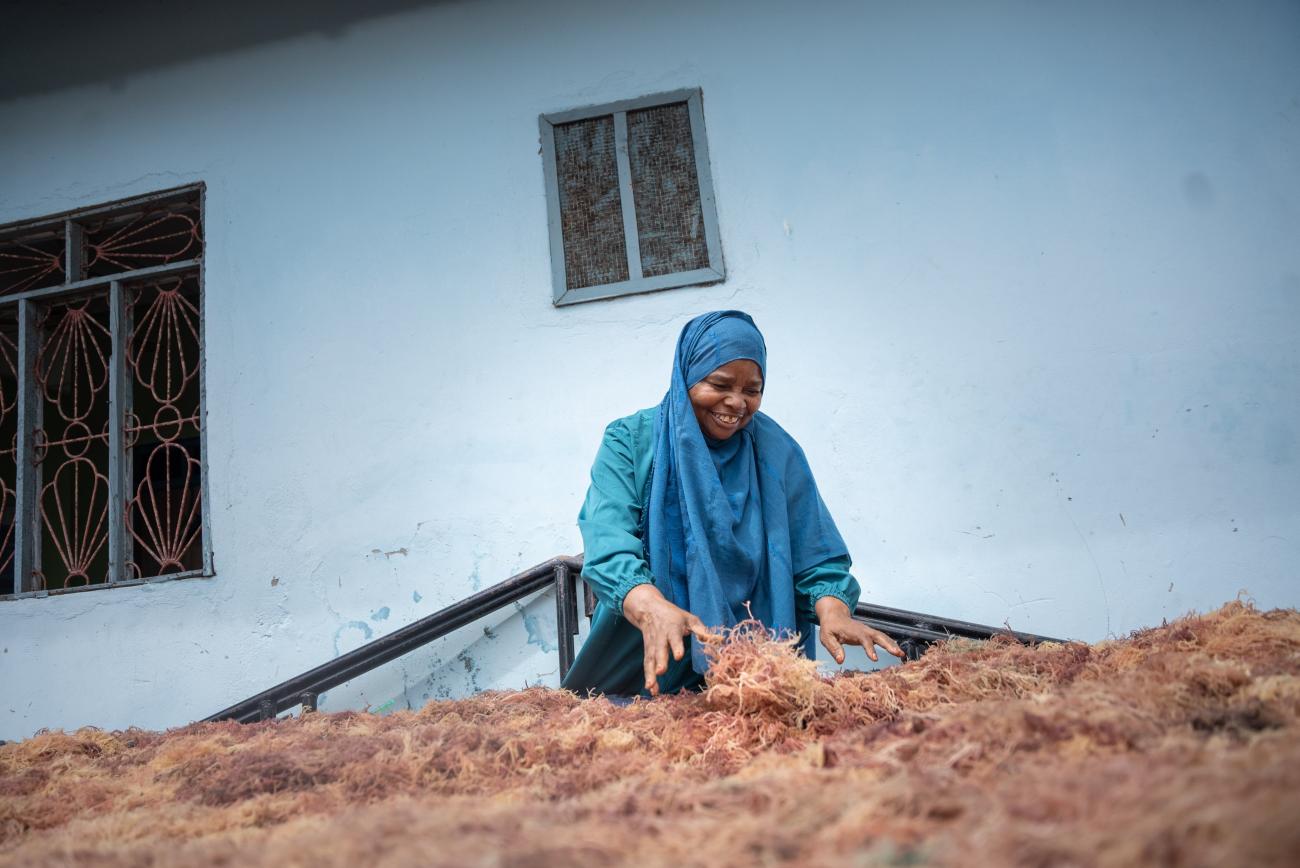
The sun barely crests the horizon when Halima wades into the warm Indian Ocean waters, her colourful kanga hiked up above her knees. In her weathered hands, she carries bundles of rope that will soon become underwater gardens of hope. For Halima, like thousands of other women across Zanzibar's coastline, these submerged plots represent far more than agriculture, they are tickets to independence, education for her children, and dignity for her community.
"From this seaweed, I pay my children's school fees and provide food for my family," Halima explains, her fingers working with practiced precision as she ties delicate seaweed strands to cultivation ropes. "If we can grow our income, we can invest more in our homes and our community."
Her story echoes across 23,000 farming families throughout this semi-autonomous archipelago, where over 80 percent of seaweed cultivators are women. What began as a humble coastal farming practice has blossomed into Tanzania's second-largest export crop, creating ripples of economic empowerment that extend far beyond the shoreline.
More Than a Crop
Susan Ngongi Namondo discovered this truth shortly after arriving as UN Resident Coordinator in Tanzania. "It wasn't long after I arrived that I realized that seaweed is actually more than a crop here," she reflects. "Seaweed is a means of livelihood, sustaining families. Supporting women over generations."
Walking through coastal villages where drying seaweed carpets the beaches in vibrant greens and browns, it becomes clear that this is not just farming, it is a lifeline. While the global seaweed market booms with demand for everything from food products to cosmetics, these women have been quietly perfecting their craft, generation by generation, in the crystal-clear waters off Africa's eastern coast.
Yet despite their expertise and the growing international appetite for seaweed products, many farmers remain trapped in cycles of limited income. Without access to credit, insurance, or investment capital, their ability to scale up operations and tap into lucrative markets has been severely constrained.
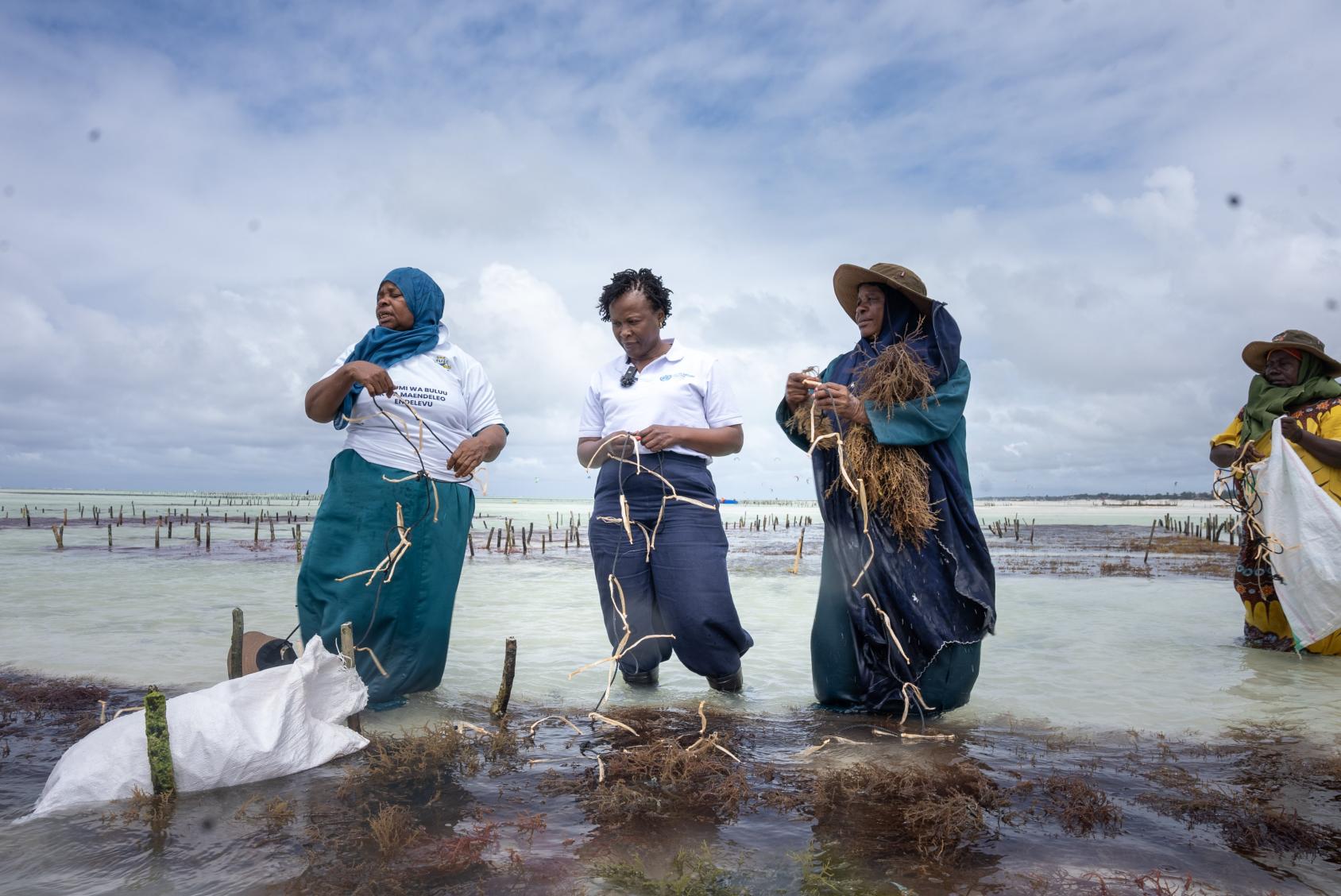
Breaking the Barriers
The breakthrough came when Zanzibar’s innovative approach caught international attention at the Local2030 Coalition and Joint SDG Fund Design Sprint in Bilbao, Spain. The idea of channelling integrated financial solutions into the seaweed value chain gained recognition and set the stage for a new joint programme.
The Joint Programme on Transforming Seaweed Farming through Integrated Financial Solutions, funded by the UN Joint SDG Fund and implemented by FAO, UNDP, IFAD, and WFP in partnership with the Revolutionary Government of Zanzibar, targets one of the most critical bottlenecks in the sector: access to finance. By addressing credit, insurance, and cooperative-based financing, the programme will enable farmers—most of them women—to expand production, diversify products, and connect to new markets.
For women who have never had collateral to offer banks or financial literacy training to navigate complex lending systems, this represents a shift. The initiative introduces de-risked lending schemes, micro-insurance, and cooperative-based financing tools designed specifically for the realities of seaweed farming.
"The role of the UN is supporting women to scale up this business, to take seaweed and actually make it into a business," Namondo explains. "Seaweed is extremely lucrative right now, both as a food product and as a cosmetic product."
By 2028, the Initiative aims to reach 15,000 households while raising incomes by 40 percent. But behind those statistics are individual dreams, children who will attend university, homes that will be improved, communities that will thrive.
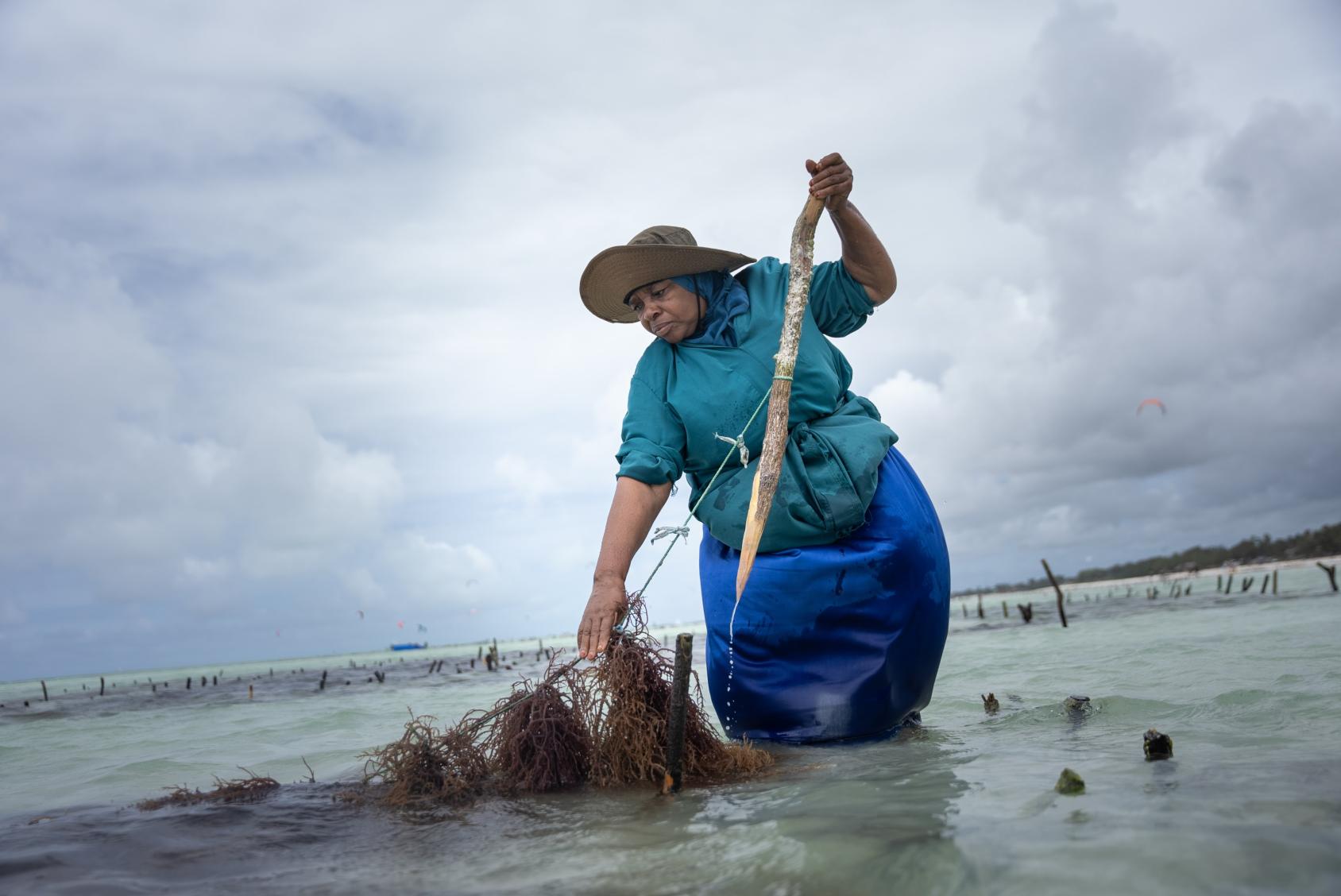
Building on strong foundations
This new initiative complements the Zanzibar Joint Programme (ZJP): Integrated Innovations for Sustainable Development, co-designed by the Government and the UN with support from the Royal Norwegian Embassy in Tanzania. The Programme addresses the root causes of poverty and inequality in two of Zanzibar’s most left behind regions through four transformative pathways, among them: enhancing seaweed production and quality, strengthening cooperatives, promoting gender equality, and improving post-harvest handling and market access. Together, the two programmes create a stronger ecosystem of support reflective of the Government’s wider blue economy strategy and its vision of seaweed as a driver of inclusive and sustainable growth.
Looking ahead
The transformation happening in Zanzibar's seaweed sector reflects something larger, a recognition that sustainable development must be built on the foundations of what communities already do well. Rather than imposing external solutions, this approach amplifies existing expertise while removing systemic barriers.
"It's always good to be with farmers," Namondo muses after spending time in coastal communities. "I think farmers are among the happiest people on earth, and their work is shaping a better future for all of us."
In the gentle ebb and flow of Zanzibar's tides, change is taking root. And for thousands of families across these islands, the future has never looked more promising.
All joint programmes of the Joint SDG Fund are led by UN Resident Coordinators and implemented by the agencies, funds and programmes of the United Nations development system. With sincere appreciation for the contributions from the European Union and Governments of Belgium, Denmark, Germany, Ireland, Italy, Luxembourg, Monaco, The Netherlands, Norway, Poland, Portugal, Republic of Korea, Saudi Arabia, Spain, Sweden, Switzerland and private sector funding partners, for a transformative movement towards achieving the SDGs by 2030.
